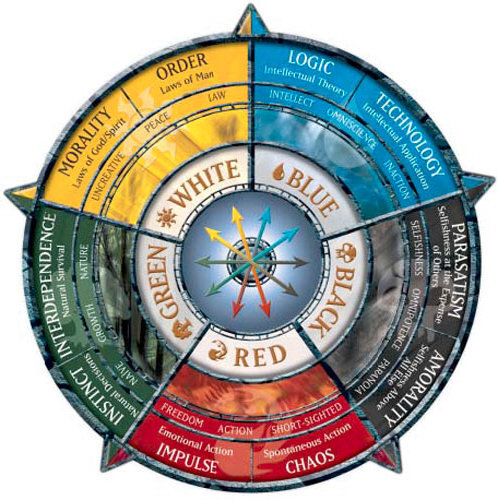Factions, or groups united by shared goals, ideologies, or interests, have been a significant force in shaping societies throughout history. From political parties to social movements, these factions play crucial roles in driving change, influencing public policy, and reflecting the evolving dynamics of societal values. This article explores the evolution of factions, their impact on society, and how they continue to shape our world today.
#### **1. Historical Evolution of Factions**
**Ancient and Medieval Periods**:
– **City-States and Kingdoms**: In ancient city-states like Athens and Rome, factions often formed around political and social divides. In Athens, for example, factions such as the democrats and oligarchs influenced the city’s governance and policies.
– **Feudal Societies**: During the medieval period, factions emerged around regional lords and feudal allegiances. These factions frequently engaged in power struggles and wars, shaping the political landscape of Europe.
**Early Modern Era**:
– **Political Parties**: The concept of political parties began to formalize in the early modern period. The Federalists and Anti-Federalists in early America, for example, represented different visions for the country’s governance. The emergence of political parties helped to systematize factionalism and make it a central aspect of democratic processes.
– **Revolutions and Reforms**: The Enlightenment era and subsequent revolutions saw the rise of various factions advocating for change. The French Revolution, for example, was driven by factions such as the Jacobins and Girondins, each with different approaches to governance and reform.
#### **2. The Role of Political Parties**
**Formation and Function**:
Political parties are formalized factions that represent various interests and ideologies within a political system. They serve several functions:
– **Policy Development**: Parties develop and promote policies based on their ideological positions. This helps to organize political debate and provide voters with clear choices.
– **Representation**: Political parties represent the diverse interests of society. They aggregate various viewpoints and translate them into actionable policy proposals.
– **Governance**: Parties play a central role in governance by forming governments, setting agendas, and implementing policies.
**Impact on Society**:
– **Democratic Engagement**: Political parties are crucial for democratic engagement, providing a structured way for citizens to participate in the political process.
– **Polarization**: While parties can facilitate democratic processes, they can also contribute to political polarization, especially when factions become entrenched in opposing viewpoints.
– **Policy Innovation**: Parties often drive policy innovation by proposing new ideas and reforms. This can lead to significant societal changes, such as the expansion of civil rights or changes in economic policy.
#### **3. The Rise of Social Movements**
**Origins and Growth**:
Social movements are often formed by factions seeking to address social injustices, advocate for reforms, or promote specific causes. They differ from political parties in their focus and structure:
– **Grassroots Mobilization**: Social movements often start as grassroots efforts, mobilizing individuals around shared causes. Examples include the Civil Rights Movement and the Women’s Liberation Movement.
– **Advocacy and Activism**: These movements use various forms of activism, including protests, advocacy campaigns, and grassroots organizing, to influence public opinion and policy.
**Impact on Society**:
– **Social Change**: Social movements have been instrumental in achieving significant social changes. For instance, the LGBTQ+ rights movement has led to broader acceptance and legal rights for LGBTQ+ individuals.
– **Public Awareness**: Movements often raise awareness about societal issues, bringing attention to topics that may be overlooked or marginalized by mainstream media and political systems.
– **Policy Reforms**: Successful social movements can lead to legislative and policy changes, such as the passage of civil rights legislation or environmental regulations.
#### **4. Modern Factions and Their Influences**
**Digital and Social Media**:
The advent of digital and social media has transformed the nature of factions:
– **Online Communities**: Social media platforms enable the rapid formation and mobilization of factions around various causes. Hashtags and online campaigns can amplify voices and drive action on a global scale.
– **Echo Chambers**: Digital media can create echo chambers, where individuals are exposed primarily to viewpoints that align with their own. This can reinforce factional divisions and contribute to polarization.
**Political Polarization**:
– **Partisan Politics**: Modern political landscapes often feature intense partisan polarization, with factions within political parties and between different parties engaging in frequent conflict.
– **Identity Politics**: Factions based on identity politics, such as race, gender, or ethnicity, are increasingly prominent. These groups advocate for specific rights and representation, influencing both political discourse and policy.
**Global Movements**:
– **Climate Action**: Global social movements focused on climate action, such as Fridays for Future, highlight the growing importance of international factions advocating for environmental sustainability.
– **Human Rights**: Movements advocating for human rights, such as those addressing racial injustice or refugee crises, have gained prominence and influence, reflecting a globalized approach to addressing social issues.
#### **5. Navigating Factions in Contemporary Society**
**Understanding and Engagement**:
– **Dialogue and Cooperation**: Engaging in constructive dialogue between different factions can help bridge divides and foster cooperation. It’s important to understand diverse perspectives and seek common ground.
– **Informed Decision-Making**: Awareness of the different factions and their motivations can lead to more informed decision-making, whether in politics, social issues, or personal choices.
**Challenges and Opportunities**:
– **Balancing Interests**: Balancing the interests of various factions can be challenging, especially when they have conflicting goals. Effective negotiation and compromise are crucial for achieving meaningful outcomes.
– **Promoting Inclusivity**: Ensuring that all voices are heard and considered can help mitigate the negative effects of factionalism and promote a more inclusive and equitable society.
#### **Conclusion**
Factions have been integral to societal development, influencing everything from political systems to social movements. Their evolution reflects changing societal values and technological advancements, shaping the way we engage with and understand the world. By recognizing the role of factions and navigating their impact thoughtfully, we can foster a more dynamic and responsive society that addresses the needs and aspirations of diverse groups. Whether through political parties or social movements, factions continue to drive change and reflect the complex interplay of interests and ideologies in our world.


